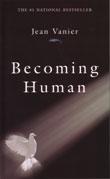The Most Human Human

I recently read a non-fiction book called “The Most Human Human,” which, (as you have probably noticed by now), is the subject of this review. If you have read even a few of my previous posts, most likely you won’t be surprised that this title alone sparked my interest. What does it mean to be the most human human? Isn’t being human enough to make me human (at least as human as that other human passing on the street)? The essential qualities or capacities that underlie our shared humanity and give us common ground with one another is a topic that I find endlessly fascinating and pressingly important. It is also something I have touched on a lot in my writing (see for example Becoming Human, Dignity and Dependence, and the entire Person to Person series). An attentive reader might say I am thoughtfully exploring these issues (and a less generous estimation might use the word “obsessed”).
Yet I hope in this review I can convince you that it is important for us to be aware of what makes us human, and that this is no small or trivial question. Brian Christian, the author of “The Most Human Human,” is certainly of the same mind. Although Christian branches off in many different directions throughout the book, the central narrative revolves around his participation in a competition inspired by the Turing Test. What is the Turing Test exactly? Perhaps you are familiar with the recent film, “The Imitation Game,” which takes place during the Second World War and stars the brilliant Benedict Cumberbatch as Alan Turing. Turing was a computer scientist (among other things) and proposed a test for determining human intelligence. If a computer could be judged as a human through an online conversation, then it passes the test. As a human confederate at a competition of this nature, Brian Christian chatted online with judges who would also converse with computer programs and then decide which of their interlocutors were human. The computer and human labelled most frequently as humans are called, respectively, “The Most Human Computer” and “The Most Human Human.”



